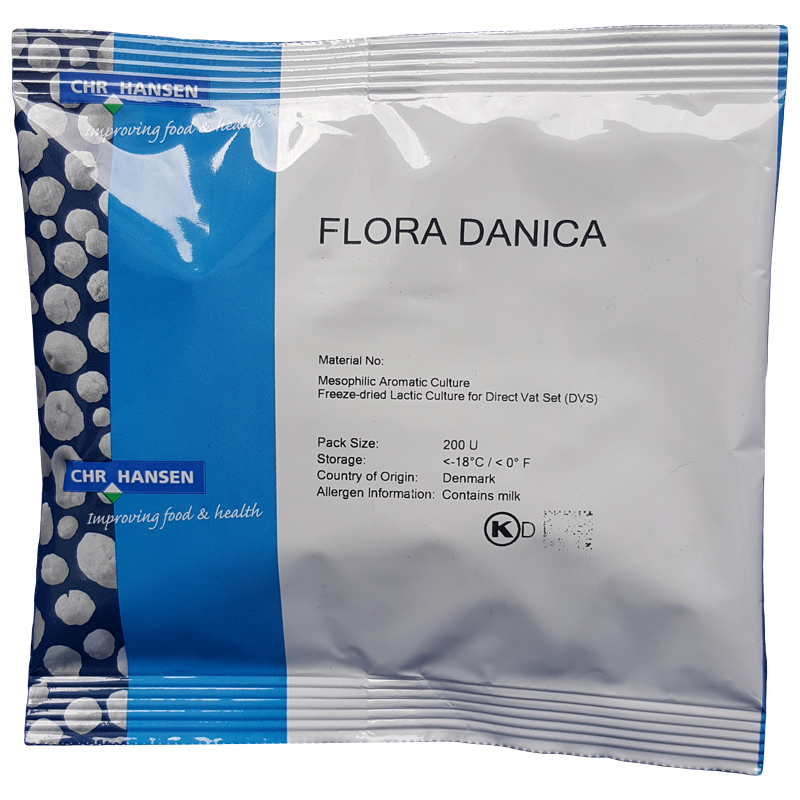Dosage and pack size
- Large Size 250U inoculates 1250 to 5,000 litres
- Small size (25U screw cap bottle which is 1/10th of a large pack) will inoculate 125 to 500 litres of milk depending on dosage used
- An approximate guide for usage is 1 Dash mini spoon or 1/8th spoon to 8 litres of milk
Types of Cheese Flora Danica can be used on:
All white mould such as Camembert, Brie and Triple Cream, Coulommiers, All Blue vein varieties, All wash rind varieties eg Raclette, Port Salut, Reblochon, Muenster Taleggio, Tilsit, All washed curd Semi Soft Styles eg Colby, Edam., Gouda, Havarti, Cream cheese, Tomme (made with mesophile), Sour cream, Quark, Fromage blanc, Chaource, Neufchatel, Chevre, Chèvre frais, St-Maure, St Marcellin, Valençay, Selles- sur- Cher, cultured butter, Mizithra, soft fresh cheeses, Faisselle, Reblochon, Lactic Acid Set cheeses, Pouligny St Pierre, Crottin, Jarlsberg (with mesophile culture culture), Manchego, Monterey Jack.
Description
Flora Danica is a mix of four different strains of mesophilic cultures:
- Lactococcus lactis subsp. Lactis
- Lactococcus lactis subsp. Cremoris
- Lactococcus lactis ssp Lactis biovar. diacetylactis
- Leuconostoc mensenteroides subs. cremoris
It is a very diverse culture that can be used across many styles of cheese. It is one of the most popular of all the starter cultures.
Flora Danica produces medium carbon dioxide gas production, medium levels diacetyl (buttery flavour) and medium citrate fermentation. Flora Danica is like M272, but Flora Danica is a stronger flavour and gas producer. Its primary functions are three-fold, to produce lactic acid to acidify the milk, releases quite a lot of flavour and to produce eyes or small holes in the cheese.
Flora Danica also contains the Leuconostoc mensenteroides subs cremoris starter which is an important flavour producer because it has a unique ability to ferment the citrates in milk to produce diacetyl and aroma compounds and carbon dioxide.
- Flavour profile: 4 out 5
- Acid production: 3 out 5
- Resistance to bacteriophage: 4 out 5
The 3 out of 5 rating for acid production is important where over acidification is a problem. For white mould cheeses, some addition of TPM (50:50 M235:TPM) is a good ration but you can choose a ration to suit you) may be also be a good idea if over acidification is an issue. See TPM for more details.

